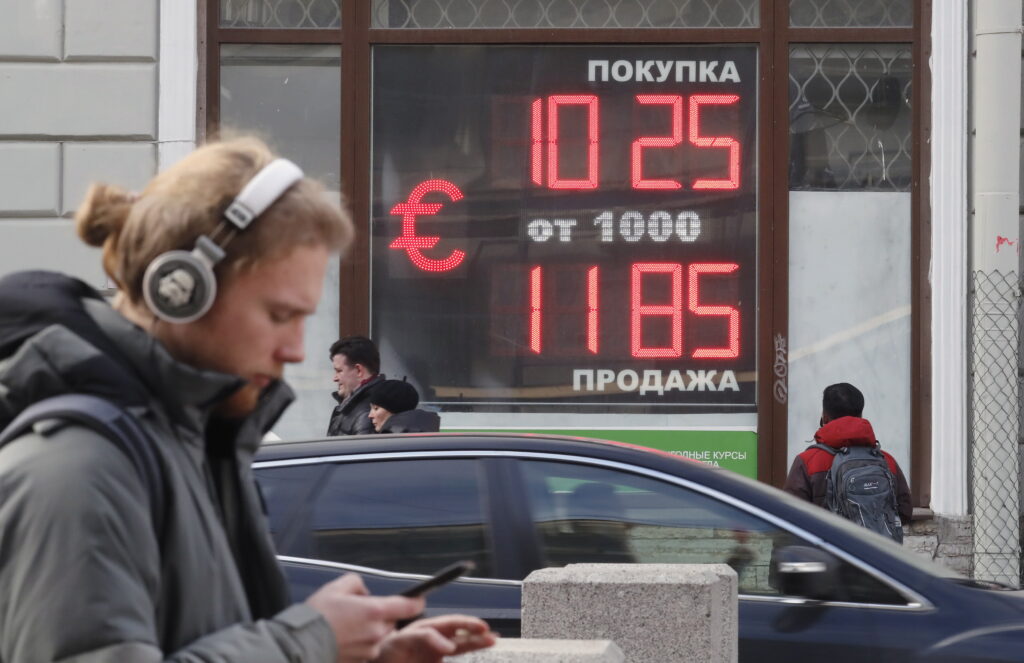
Moscow/ Efe
The ruble plunged nearly 30% against the US dollar, trading as low as 119 per dollar as markets opened Monday after Western sanctions in response to Russia’s invasion of Ukraine came into force. It was the first day since the European Union, United States and allies cut off a number of Russian banks from the Swift international payment system and the EU “paralyzed” transactions with Russia’s central bank (CBR).
Shortly after the market opened, the ruble shed 28.34% against the dollar and 27.02% against the euro, the biggest slump for the Russian currency since the early 1990s. The CBR announced it had increased interest rates to 20%, up from 9.5%, to compensate for inflation and devaluation, while Moscow ordered companies to sell 80% of their foreign currency revenues.
The CBR said it would release 733 billion rubles (around $7 billion) of bank reserves to protect the liquidity of lenders affected by the Western sanctions. Later on Monday, the US announced it was expanding its sanctions against Russia by banning transactions with the central bank and freezing its US assets.
In a fresh blow to Russia’s economy over the weekend, Norway’s sovereign wealth fund announced it would divest from its Russian investments, which total a sum of around $3.4 billion, the government announced Sunday. The EU on Sunday approved 450 million euros ($500 million) in military aid to Ukraine as well as a further 50 million destined for non-lethal equipment.
“For the first time, the EU will finance the purchase and delivery of weapons and equipment to a country under attack,” Ursula von der Leyen, the president of the European Commission, said on Sunday. Dmitry Peskov, the Kremlin’s spokesman, on Monday said that Russia was capable of handling the effects of the Western sanctions and would draw up a response.
The rattling of the Russian economy coincided with the first day of a blanket ban of Russian aircraft in EU airspace, which von der Leyen announced on Sunday evening. Non-EU members such as the United Kingdom and Norway joined the measure.






otras noticias
Run, Breathe, and Be Amazed at LUNA
Colorado Legislature Approves Law to Boost Food Truck Industry
Polis has 30 days to sign, veto, or let SB25-276 take effect